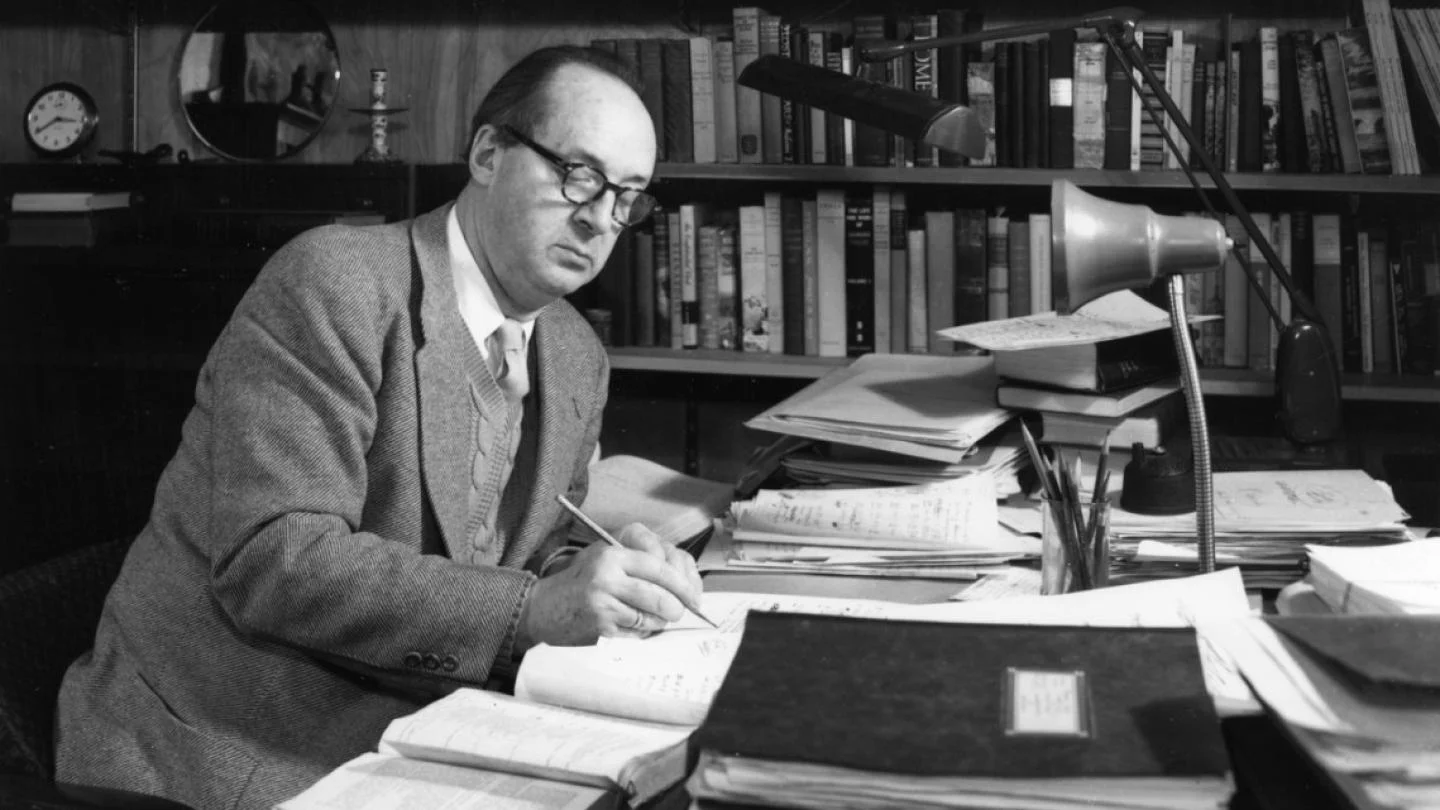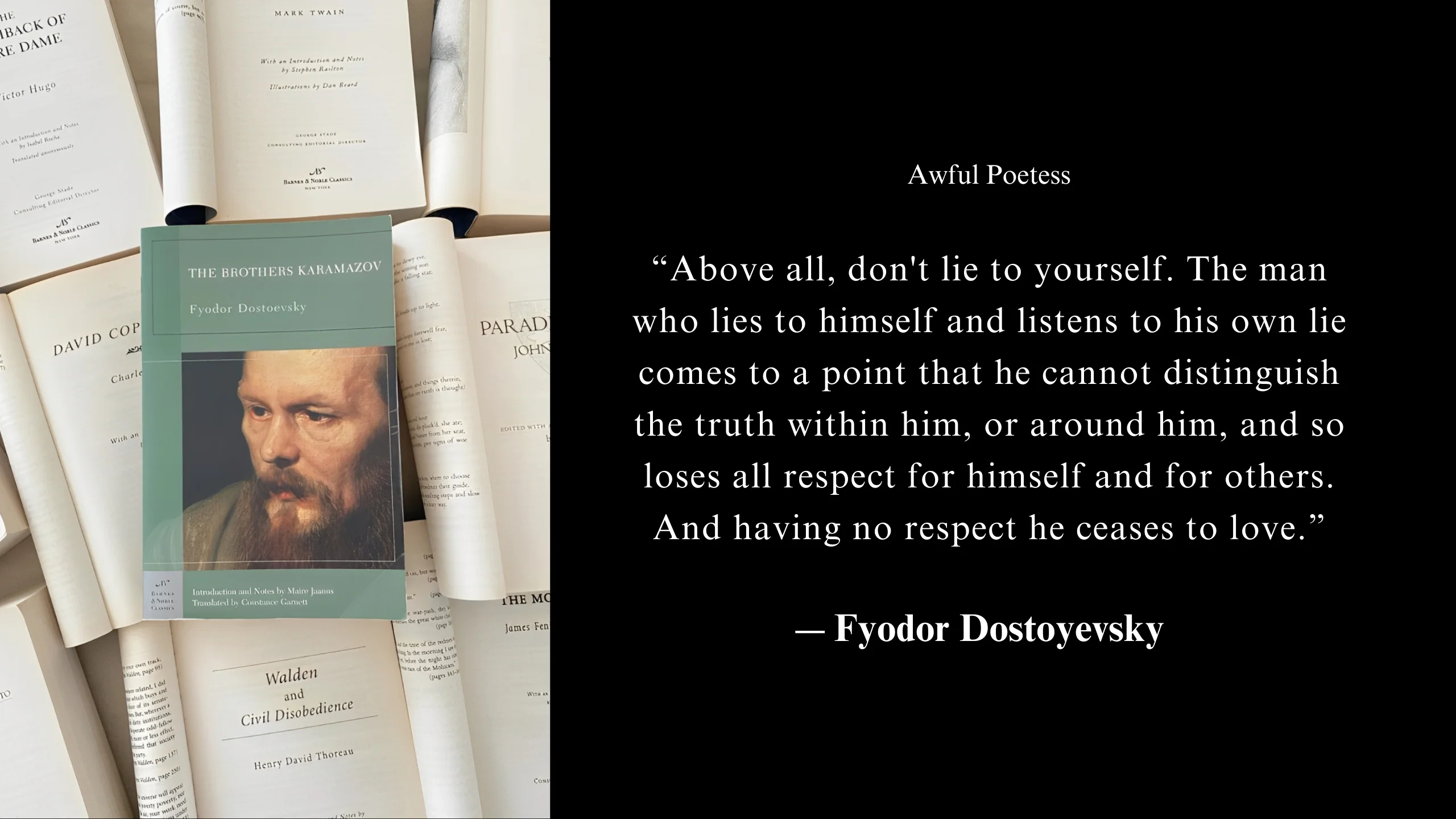Is this possible to hate a man who wrote novels like Crime and Punishment? Know the names of writers who hated Fyodor Dostoevsky and his well-known works.
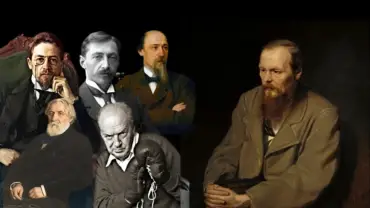
Wait… people hate Dostoevsky? Like FYODOR DOSTOEVSKY?
I know. It sounds insane, and it shook me, too. The man basically invented the psychological novel. He’s quoted in college classrooms, worshipped by literary snobs, and dissected on Reddit threads that go 74 comments straight, and people hate him? He’s a legend for sure. But yes! Some writers and readers absolutely cannot stand him.
At first, I thought: Oh, please, they’re just jealous! Pure and simple. Like, of course, you’d hate the guy who pulled off Crime and Punishment in his sleep while battling epilepsy and gambling addiction. He bled drama and genius. People were probably just mad they weren’t him. But eventually, they got reasons to hate our diva.
Why Readers Dislike Fyodor Dostoevsky’s Work
It’s hard to imagine someone hating Dostoevsky outright, but yes, readers dislike him. While he’s considered one of the greatest novelists, not everyone vibes with his work. People usually criticise Dostoevsky’s writing for being dense and heavy.
They may find it long-winded, overly philosophical, and emotionally intense. Some readers even find his work exhausting and hard to follow, especially without much context on Russian society or Orthodoxy. Guilt, madness and seriousness are everywhere in his work, which can be too much for readers who are stuck at Haunted Adeline… Just kidding!
So yeah, Dostoevsky’s not everyone’s cup of vodka. He’s more like a bitter shot of truth that burns on the way down.
Writers Who Hated Dostoevsky
I never noticed the war between writers until this research. It’s honestly surprising to see how writers viewed each other. It’s kind of wild; you grow up thinking all these classic authors are quietly sitting on bookshelves in harmony… then you dig a little deeper and boom: full-on literary drama.
Writers judging each other is a whole genre of its own. Some were shady, some were petty, and some were just straight-up savage. Nabokov vs. Dostoevsky is just one feud. Wait till you find out that Mark Twain couldn’t stand Jane Austen.
But for now, let’s explore this Russian author drama, where everyone seemed to have a problem with Dostoevsky.
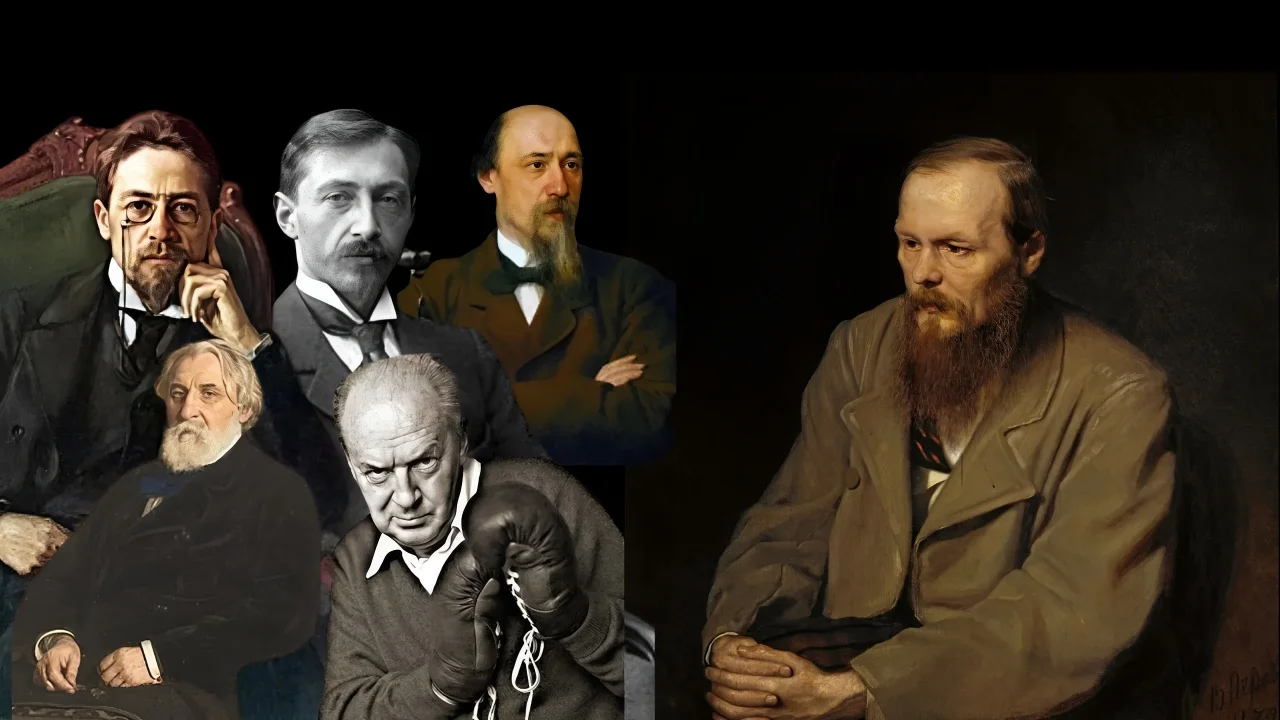
Ivan Turgenev: Dostoevsky thought too highly of himself
Turgenev and Dostoevsky were like two brilliant but wildly different personalities constantly circling each other in Russia’s literary high society. Turgenev, the polished gentleman with Western European tastes and a love for reason and subtlety, often rolled his eyes at Dostoevsky’s intense, brooding, and almost chaotic energy. He thought Dostoevsky’s characters were too dramatic, always on the edge of a breakdown or spiritual revelation, and found the whole thing a bit excessive. Meanwhile, Dostoevsky saw Turgenev as overly elitist and emotionally cold, someone too in love with French salons to understand the messy, soulful heart of Russia.
They respected each other’s talent (you can’t really deny genius when you see it), but they just couldn’t vibe. At times, their rivalry got personal. Dostoevsky even mocked Turgenev in his novel The Devils, portraying him as a pretentious, out-of-touch liberal. Turgenev wasn’t innocent either; he was known to grumble in letters about Dostoevsky’s “fanaticism” and “pathos.” So while they shared the same literary stage, behind the scenes, it was more cold war than friendship. A classic case of “I respect you, but please stay away from me.”
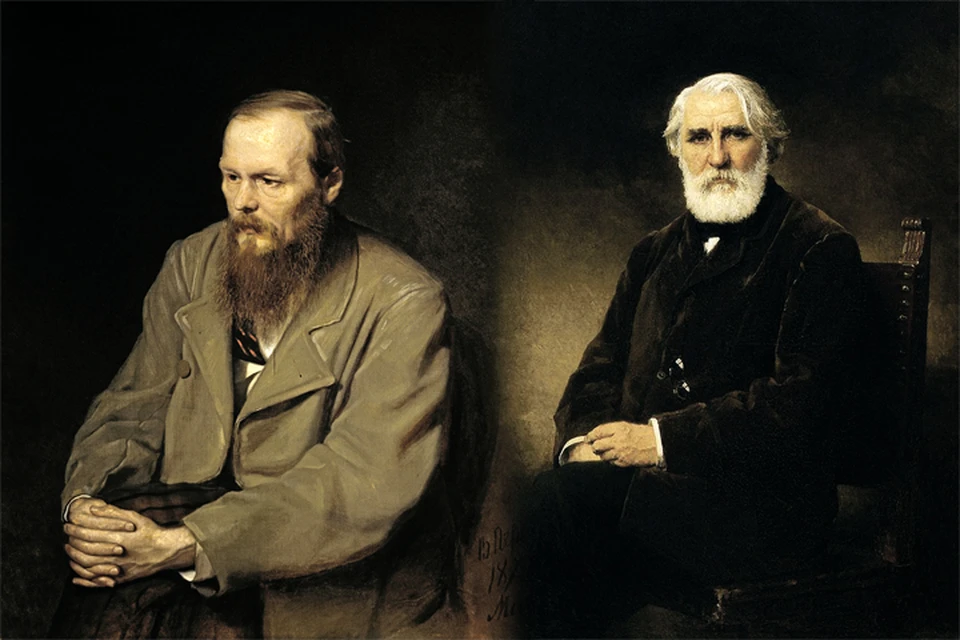
Nikolai Nekrasov: Consider Fyodor Dostoevsky Cocky
When Poor Folk first landed on Nekrasov’s desk, he was blown away. He rushed to show it to Belinsky (Russia’s top critic at the time), exclaiming his iconic line, “A new Gogol has been born!” Nekrasov was genuinely thrilled, and he felt like he’d just discovered the next big voice in Russian literature. He praised Dostoevsky, even championed his debut, and played a key role in launching his career. In those early days, he was all in: supportive, enthusiastic, maybe even a little starstruck.
But here’s where it gets gossipy: unfortunately, that initial admiration faded fast. Once Dostoevsky started soaking up the praise and leaning into his whole “tortured prophet” persona, Nekrasov’s excitement turned into quiet annoyance. It was like introducing someone to the party, and then they grab the mic and never stop talking. Nekrasov was initially deeply impressed, but over time, he started thinking Dostoevsky was a bit too high on his own genius. From awe to eye-roll, their relationship was a classic “I loved you when you were humble” story.
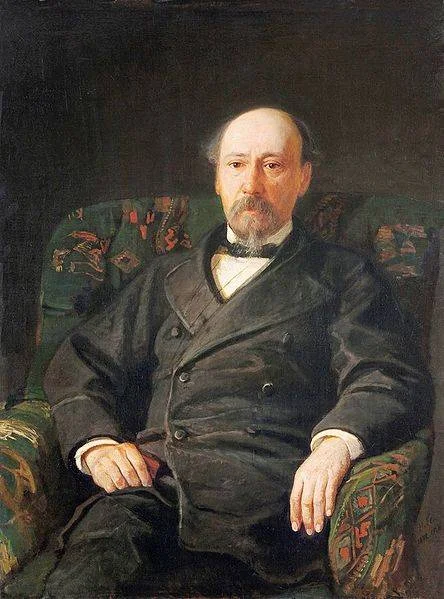
Anton Chekhov: Called Dostoevsky’s work too long and self-confident
Anton Chekhov, the calm, collected doctor of Russian realism, wasn’t exactly fangirling over Dostoevsky. He respected the guy, sure, but he thought Dostoevsky was a drama king! Chekhov once quipped that Dostoevsky’s characters didn’t just have emotions, they screamed them, wept them, and monologued for 20 pages about them. To Chekhov, all that intense soul-searching and tortured psychology felt a bit much, like Dostoevsky was trying too hard to be profound. Chekhov’s vibe was more “show, don’t shout,” and he preferred stories where the heartbreak happened over tea, not in a mental breakdown.
Now Dostoevsky, poor guy, never got the chance to clap back. He died before Chekhov became famous. But knowing his taste, he might’ve thought Chekhov’s work was too chill. Like, “Where’s the existential crisis? Why isn’t someone questioning the meaning of life in every paragraph? WHYYYYY” He was all about big themes: faith, sin, redemption, murder. Chekhov was like, “Let’s just talk about how sad and awkward dinner was last night.” If they’d ever met at dinner, Chekhov probably would’ve tried to keep it light, and Dostoevsky would’ve gone full therapist mode before dessert. Total opposites, but legends in their own lanes.
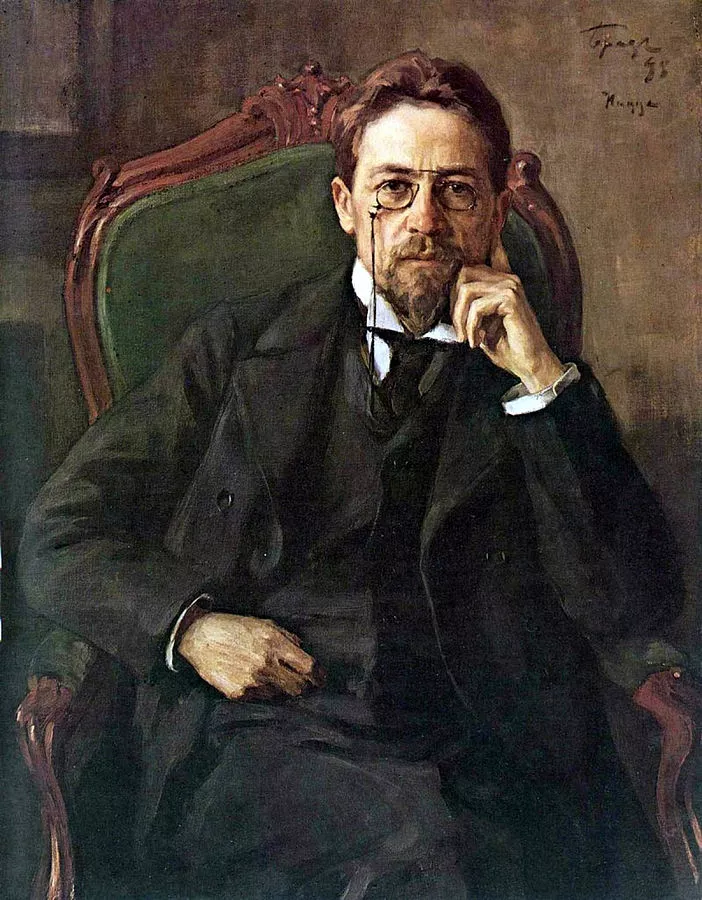
Ivan Bunin: The thought of Dostoevsky is disgusting
Ivan Bunin really went in on Dostoevsky, and not in a polite literary-critique kind of way. He once straight-up said that “the thought of Dostoevsky is disgusting” (мерзка мысль Достоевского).
So what was Bunin’s problem? Ivan Bunin was all about beauty, form, and emotional subtlety. He wasn’t into chaos and psychological drama like our Dostoevsky. Bunin was more of a literary aesthete. His writing is crisp, lyrical, full of lush landscapes, delicate emotions, and that nostalgic ache for a fading world. Meanwhile, Dostoevsky? I guess we spot the issue here. 🙂
Dostoevsky was the emotional wreck genius of Russian literature, writing intense, messy, soul-searching novels where characters screamed, sinned, repented, and questioned God every other chapter. And that’s why Ivan thought of Dostoevsky as doing way too much. He couldn’t stand the obsessive focus on moral torment, filth, and psychological suffering. He believed in art that uplifted and clarified, not one that dove headfirst into madness.
And here’s the kicker: Bunin was the first Russian writer to win the Nobel Prize in Literature (in 1933), which totally cemented his status as the refined voice of Russian émigré literature. He was living in exile in France by then, sipping wine in Paris cafés while thinking about how Dostoevsky’s characters probably needed therapy and a good nap.
So to be fair, bro’s hate wasn’t just random. Dostoevsky’s tortured style just clashed hard with his taste. Bro was just less “My brother killed our father and I hate God,” and more “The light fell just right through the orchard, and I remembered her perfume.”
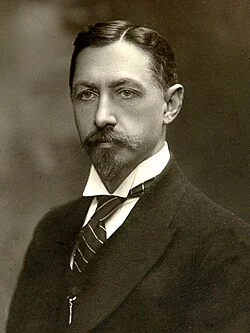
Vladimir Nabokov: Dostoevsky is not a great writer, but a mediocre one
And last but certainly not least… Mr. Nabokov! Oh yes, him. If there was ever a literary cold war, Nabokov vs. Dostoevsky would be it.
You’d think all the Russian literary giants were one big happy family, right? Nope. Nabokov could not stand Dostoevsky. Like, at all. He wasn’t just unimpressed, he was borderline offended by the hype. He basically said Dostoevsky wasn’t a writer, just a dramatic guy with a pen and too many opinions.
In one of his lectures, Nabokov called him:
“Not a great writer, but a mediocre one — with flashes of excellent melodrama.”
It seems like he always questioned Dostoevsky’s art like: “Congrats on the drama, babe, but where’s the talent?”
He thought Dostoevsky was all talk and his work is too philosophical, too loud, too obsessed with suffering (not wrong though, but this is all Dostoevsky is!). Nabokov was more into elegance, structure, style, and Dostoevsky, in his eyes, was just out here, trauma-dumping in every chapter.
But ironically, Nabokov was off fangirling over Gogol, Tolstoy, and Chekhov.
But isn’t it strange that he doesn’t grasp Dostoevsky’s range, particularly being a writer himself?
Here is the answer: So, Nabokov didn’t just say “Dostoevsky’s not my vibe.” He was personally offended by Dostoevsky’s writing. Like, it wasn’t just taste, it was a principle. To Nabokov, writing was art. Every sentence had to be beautiful, precise, and clever. Nabokov worshipped structure, wordplay, and originality, and he found Dostoevsky’s writing messy, chaotic, and emotionally overloaded.
He thought Dostoevsky was a philosopher pretending to be a novelist. He saw him as more interested in preaching than in storytelling. To Nabokov, Dostoevsky’s novels were just philosophical rants dressed up as fiction, and that wasn’t art to him; it was propaganda with characters.
